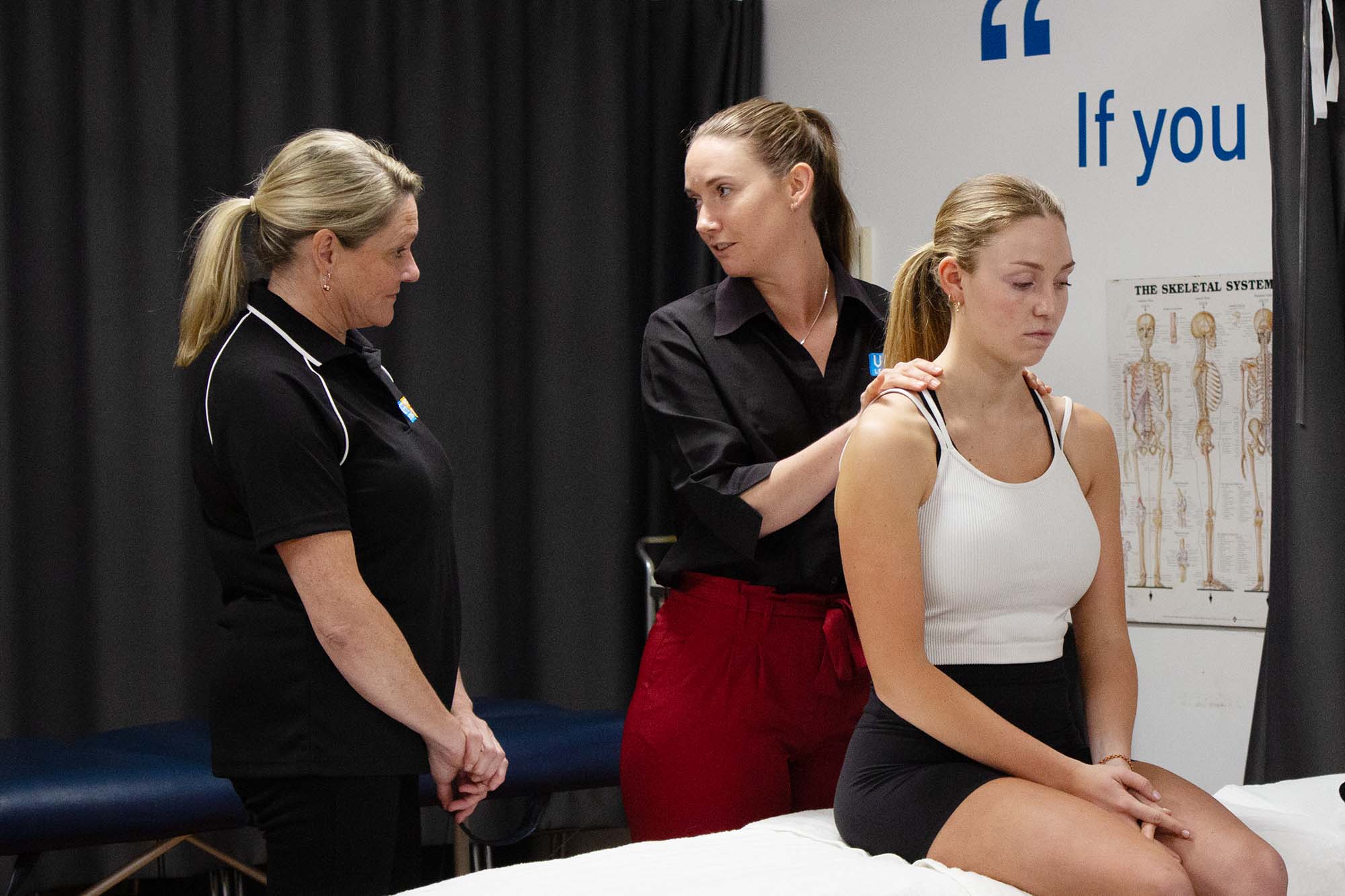
The future of work is changing faster than ever before. To stay ahead of the curve, students need to be equipped with the skills that will be in demand in the years to come. This National Skills Week, we’re not just highlighting the transformation – we’re providing you with a map to navigate it. You’ll discover the top 5 essential skills for career success that will keep you relevant and empower you to thrive in the ever-evolving professional landscape. Are you ready to unlock the secrets to success? Let’s dive in.
1. Digital Literacy and Tech Proficiency
The digital world has seeped into all areas of our lives and will only increase rapidly with the AI era on the horizon, and its influence is only set to intensify. Proficiency in using technology is no longer just an advantage – it’s a necessity.
If we think about the area of healthcare and the many applications and advancements in technology, it’s easy to see the importance of technology. When considering upskilling or choosing a provider, ensuring you use the latest and most advanced tools is crucial to fully prepare for a job.
To find out if your chosen education provider teaches the latest technology, see if their teachers still work in the field and keep learning. Trainers still in the industry bring the most current knowledge to the students. It’s also good to check if the provider talks about how their teachers keep learning and stay updated with new things happening in the field. This way, you can be sure the training provider is teaching what’s happening right now in technology.
2. Adaptability and Continuous Learning
In today’s rapidly changing world, the ability to adapt to change and continuously learn is a skill that stands as a powerful differentiator. It’s like having a secret weapon that empowers you to thrive in constantly shifting environments. A recent Australian Council of Trade Unions (ACTU) report predicts that up to 40% of Australian workers will change jobs in the next decade. This is due to several factors, including the increasing automation of jobs, the changing nature of work, and the need for workers to upskill and retrain to meet the demands of the future workforce.
Think about it: as industries evolve and new technologies emerge, those who can swiftly embrace change and acquire new skills are the ones who remain valuable assets to employers. Whether mastering the latest software, staying updated with industry trends, or even pivoting your career trajectory when necessary, adaptability and continuous learning give you the edge.
Registered Training Organisations like VFA Learning believe education is the key to unlocking opportunities for a brighter future. Seek out programs that not only provide knowledge but also foster the mindset of lifelong learning. Training providers emphasising practical skills and real-world application are equipping you not just for your first job but a career marked by versatility and the ability to thrive in a rapidly evolving landscape.
Emily Sicura, VFA Learning’s General Manager, is a strong advocate for pathway programs and flexibility.
“Many of our courses allow students to progress from a Certificate III to an Advanced Diploma level, and they can be completed in a classroom, as a traineeship, or flexi-online. The courses offered complement each other so that students can choose the right path for their individual needs. They can also work in their chosen industry while studying, which can help them get their foot in the door quicker.”
3. Communication and Collaboration
As much as technology is a big part of our jobs, effective communication and collaboration are the bedrock of success in any profession. Soft skills like teamwork, problem-solving, and relationship-building are integral to in-demand careers such as nursing, fitness, massage and education. Connecting and working harmoniously with others is as important as your technical expertise.
In the realm of professional growth, effective communication and collaboration hold the keys to success across various fields. These skills go beyond technical expertise, allowing you to connect, collaborate, and navigate real-world challenges. Deloitte’s Human Capital Trends 2022 report shows that 92% of employers prioritize these skills as much as technical knowledge. They bridge gaps, encourage innovation, and create an environment where solutions are readily found.
Think of your education as a toolkit that not only hones technical competence but also equips you with the ability to collaborate smoothly, articulate ideas clearly, and establish meaningful connections. These abilities amplify your impact, positioning you as a well-rounded professional ready for success in today’s interconnected world.
Keep in mind communication and collaboration aren’t just buzzwords. They’re practical skills that drive your professional journey. As you continue on your career journey, recognize that your proficiency in these skills will set you apart in an environment where effective teamwork, adaptability, and interpersonal skills define true accomplishment.
4. Critical Thinking and Problem Solving
In a world teeming with intricate puzzles, honing the art of critical thinking and innovative problem-solving isn’t just about impressing employers – it’s about unlocking a powerful toolkit for personal and professional growth. Imagine having the ability to dissect complex issues, connect dots others might miss, and devise strategies that stand out. This skill will take you beyond the textbook’s confines and help you navigate life’s challenges.
Vocational training courses can empower you to flex your problem solving muscles by offering scenarios that mirror real-life challenges. Practical placement and simulation clinics are a great way to put theory to the test. Students are able to take initiative by being placed in real-life situations where they need to use critical thinking and problem-solving skills whilst being supported by their trainer or supervisor. As you cultivate critical thinking skills, you’re not just preparing for a job but gearing up to seize opportunities and shape your narrative. Remember: developing these skills isn’t just for tackling today’s challenges – it’s about preparing for a future where adaptability and clever problem-solving set you apart.
5. Wellbeing and Resilience
Life’s busy. We get it. We know you perform at your best when your wellbeing is front and centre. It’s not just a side note – it’s a driving force that impacts every facet of your journey. At VFA Learning, we understand that success isn’t limited to professional achievements. It’s about balancing, fostering resilience, and nurturing mental and emotional health.
Here’s how you can enhance your wellbeing and resilience:
- Mindfulness and Stress Management: Cultivate mindfulness techniques that help you manage stress and stay focused. By incorporating mindfulness into your daily routine, you’re better equipped to handle challenges with clarity and composure.
- Physical Wellbeing: Regular exercise and a balanced diet aren’t just good for your body – they significantly impact your mental and emotional state. Prioritizing physical health positively influences your overall sense of wellbeing and boosts your capacity to tackle life’s demands.
- Emotional Intelligence: Developing emotional intelligence empowers you to navigate relationships and better understand your emotions. This skill is vital for effective communication, conflict resolution, and building strong personal and professional connections.
At VFA Learning, we focus on more than just education – we’re dedicated to your holistic growth. Our comprehensive student support program ensures you have the tools to manage stress, nurture your mental health and thrive. We also have an onsite gym and massage clinic available to our students so they can make the most of their time on campus.
Ready to embark on your journey of skill development, growth, and success?

